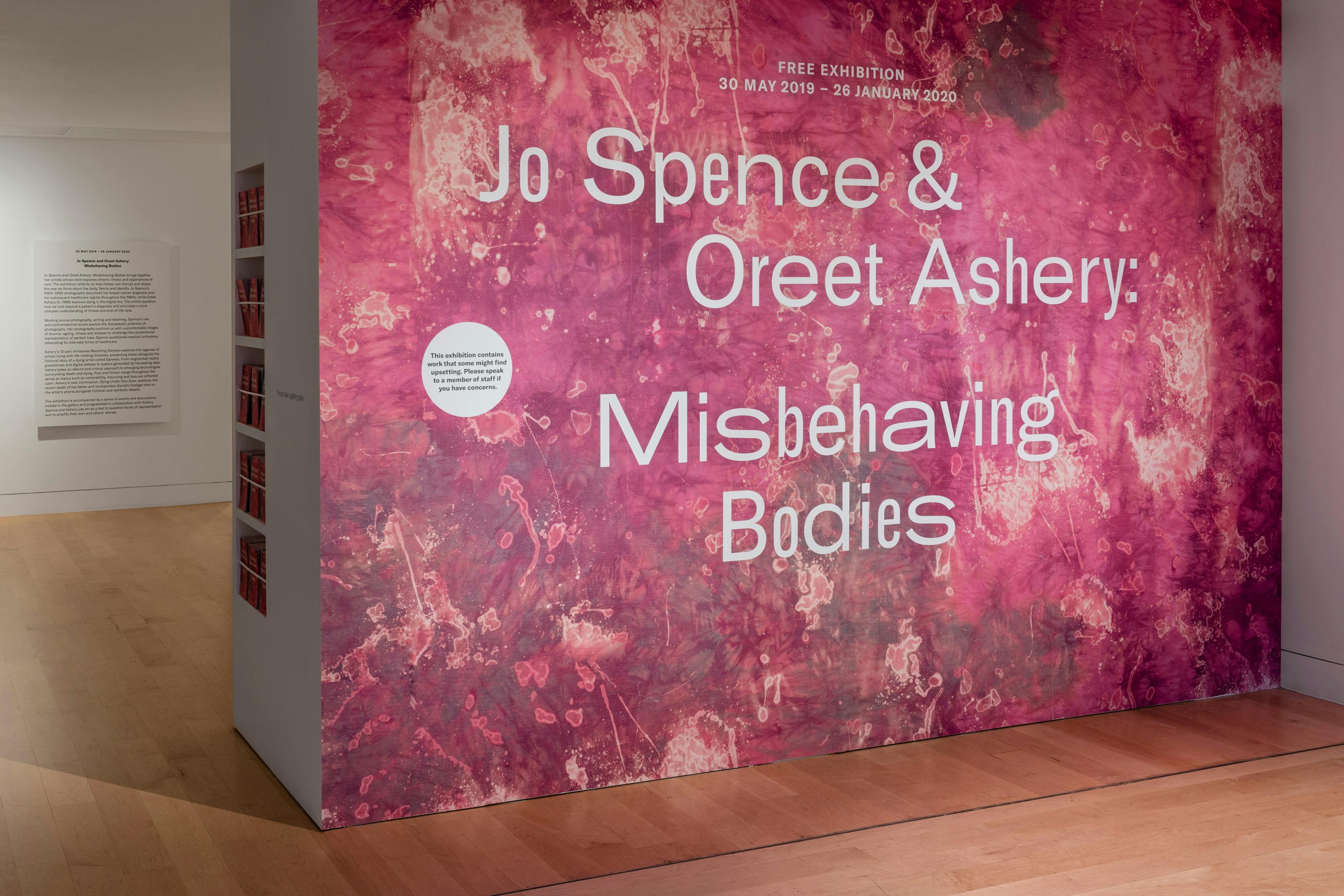

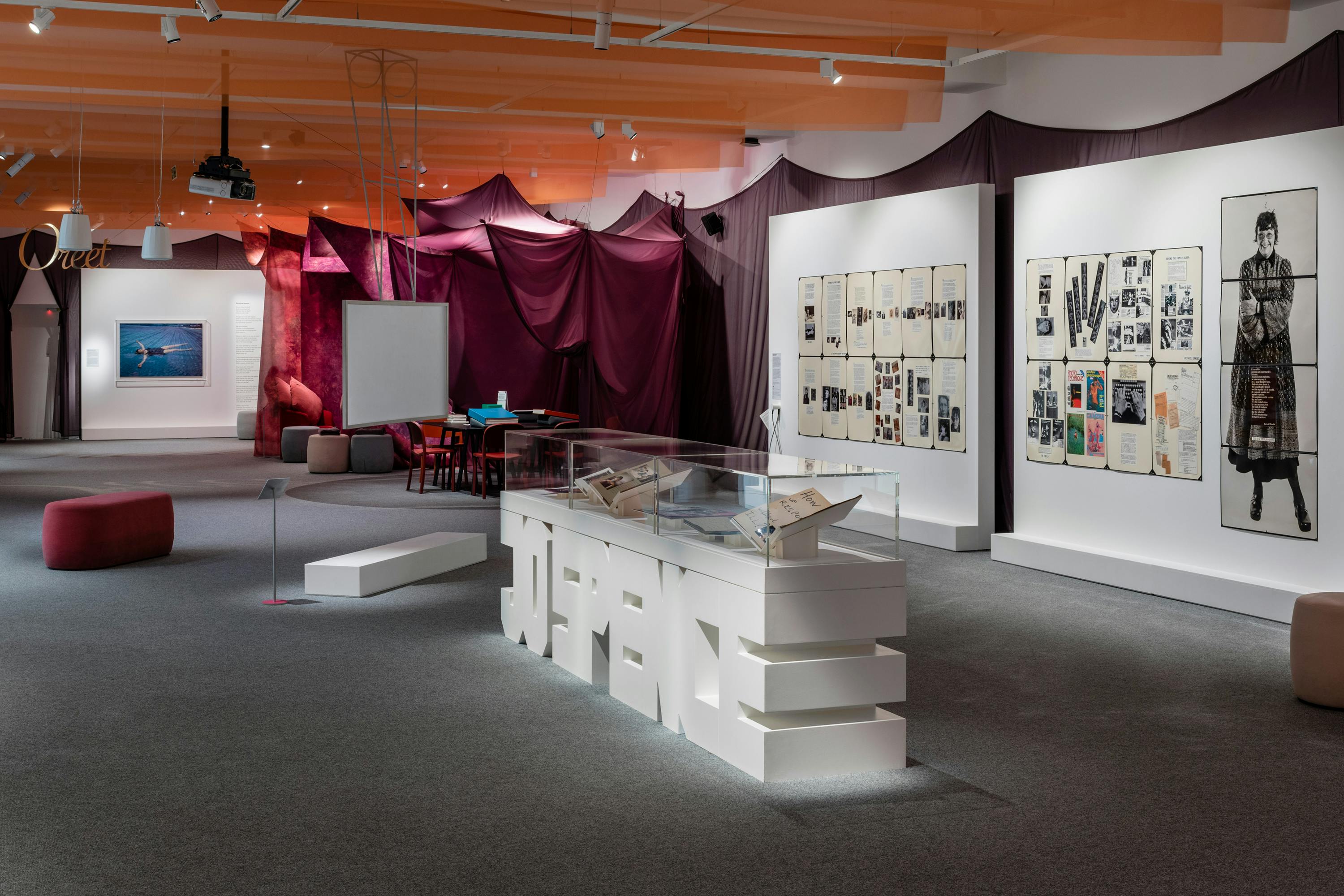
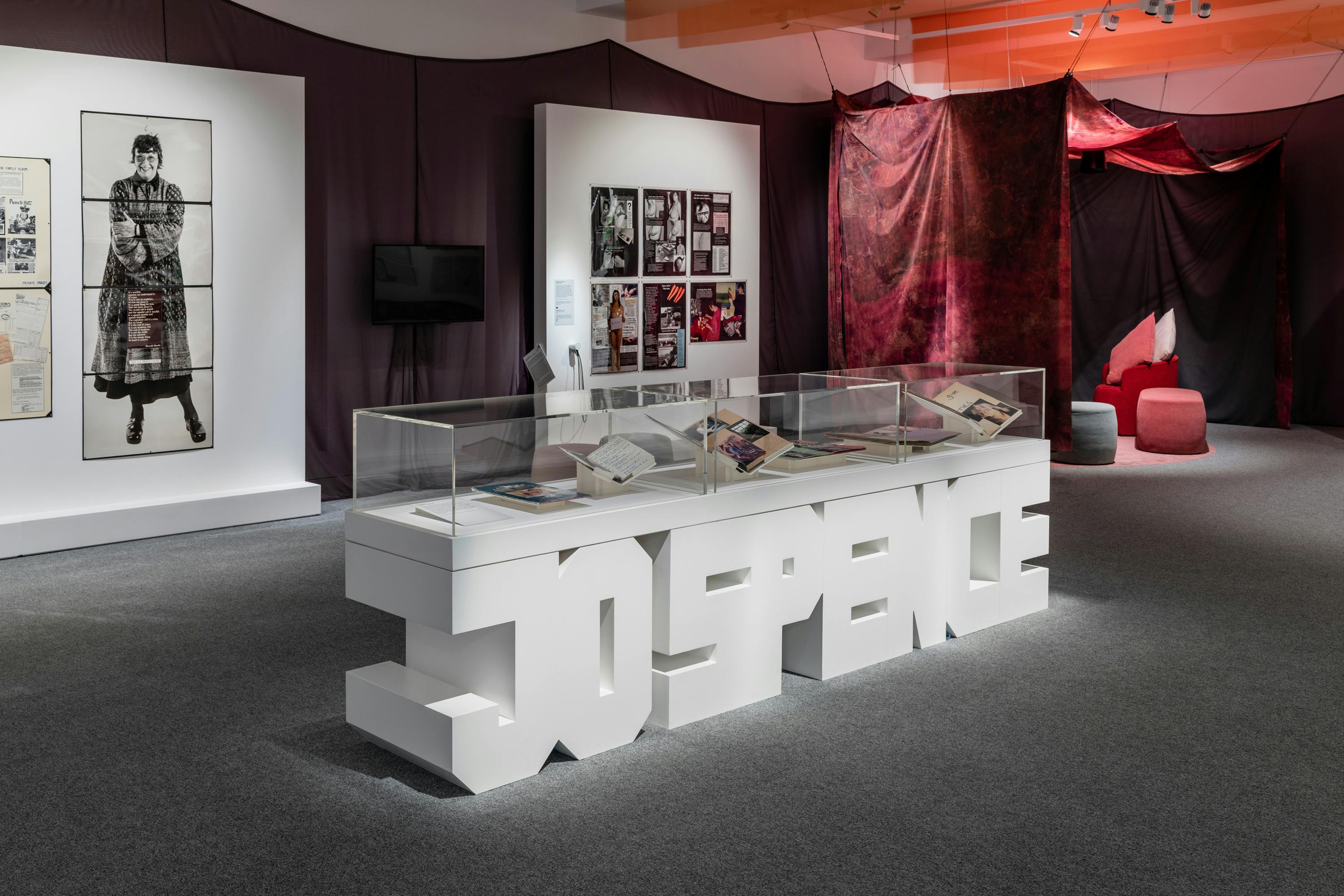
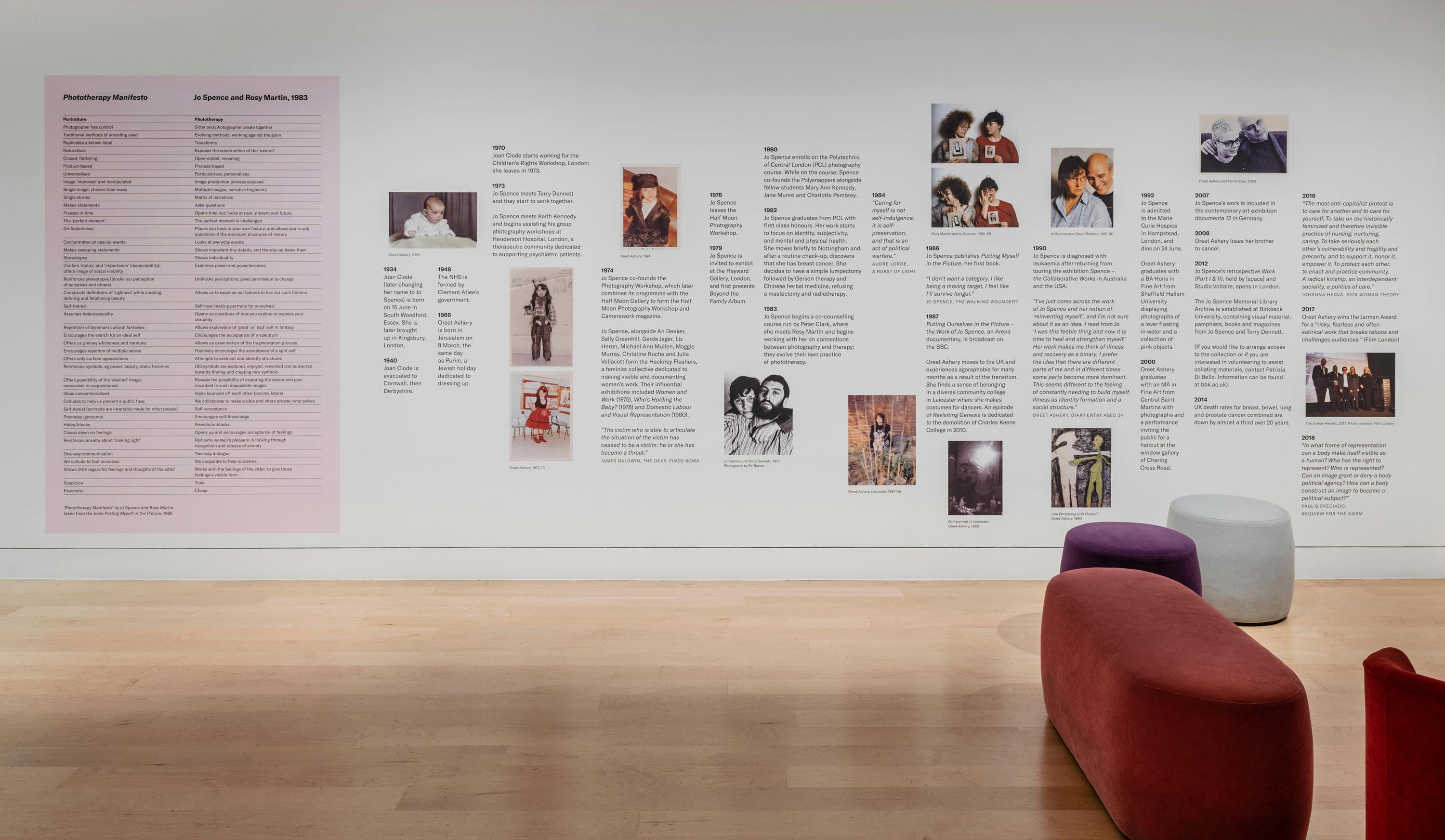
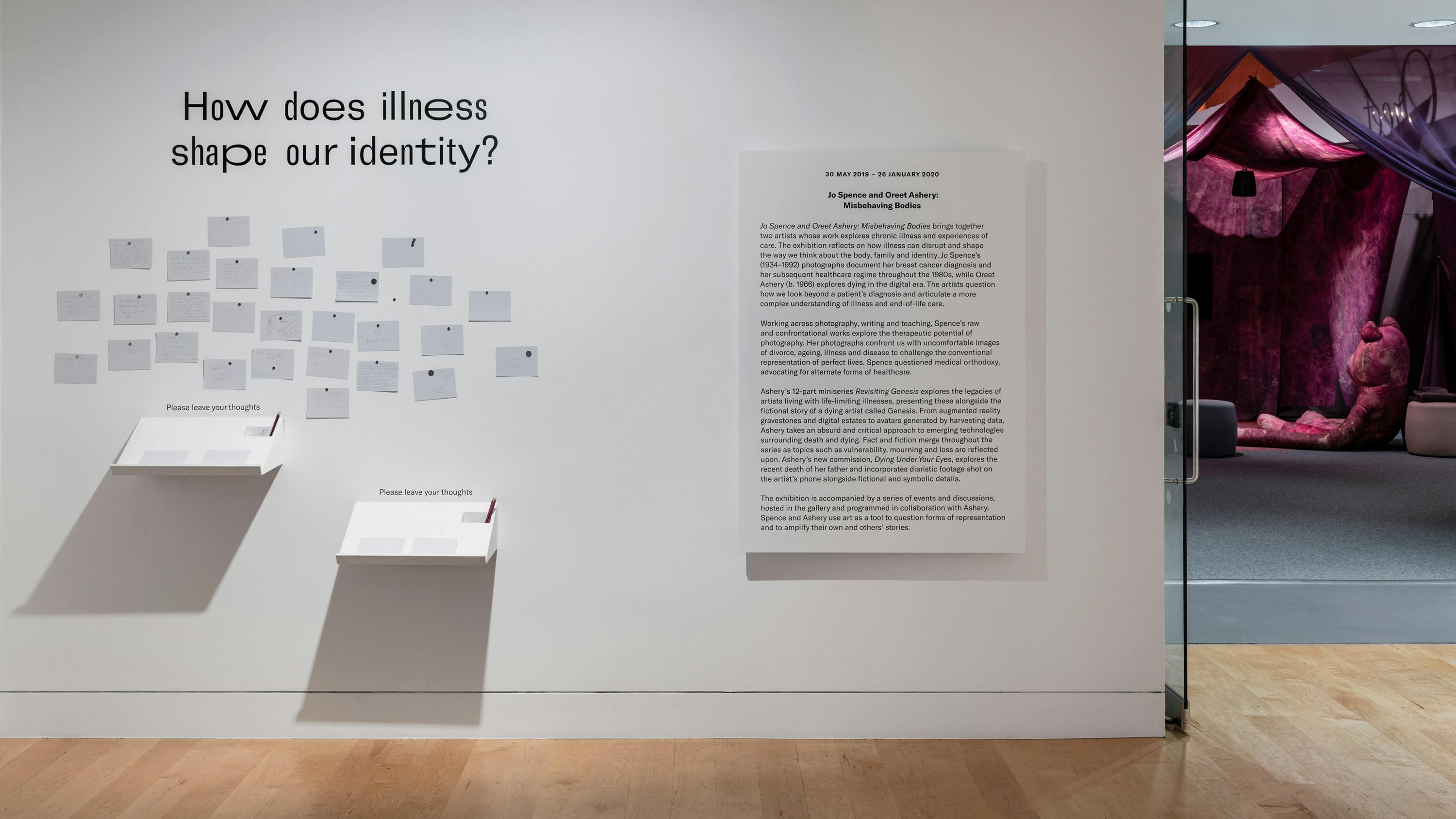
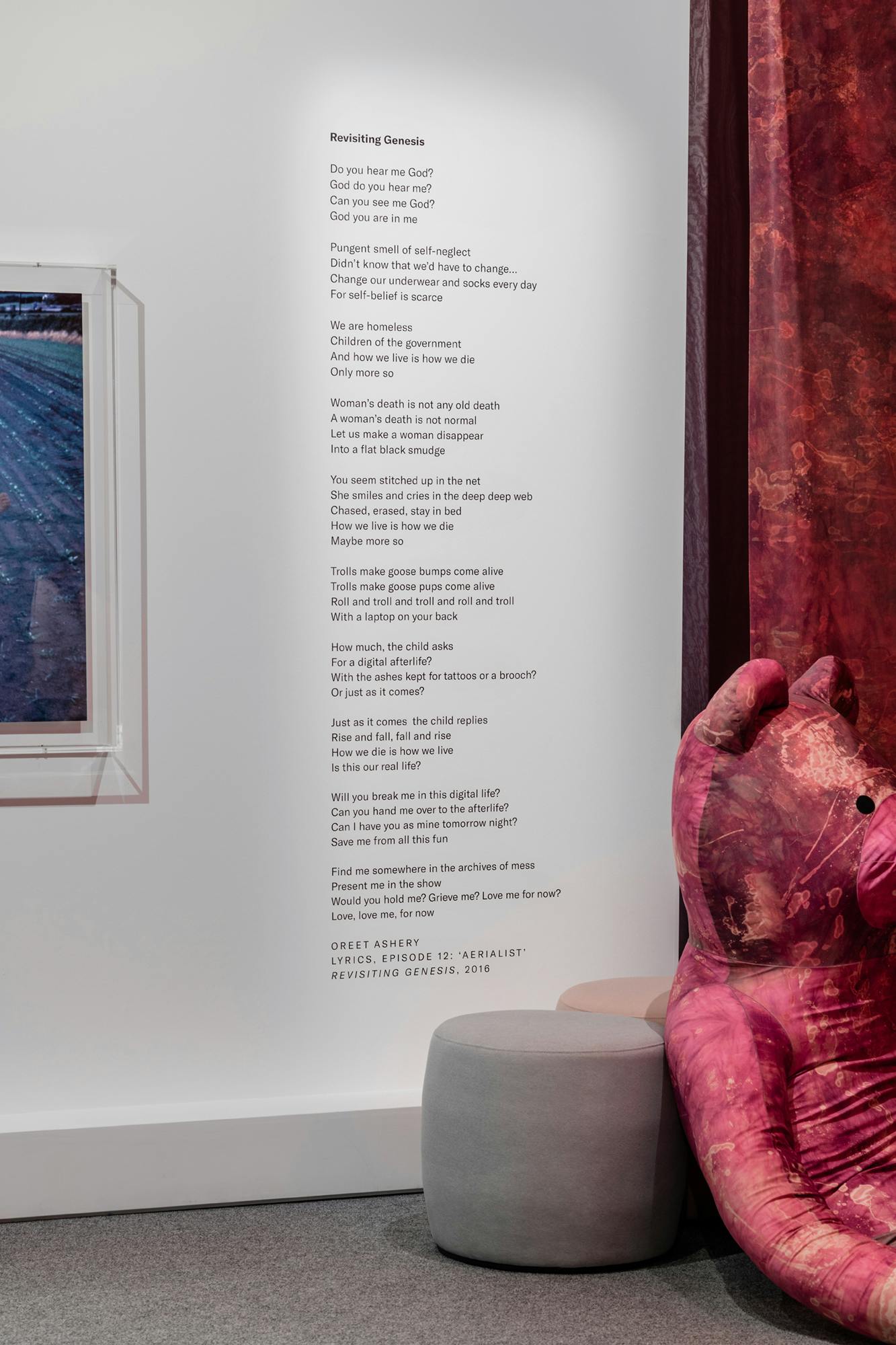
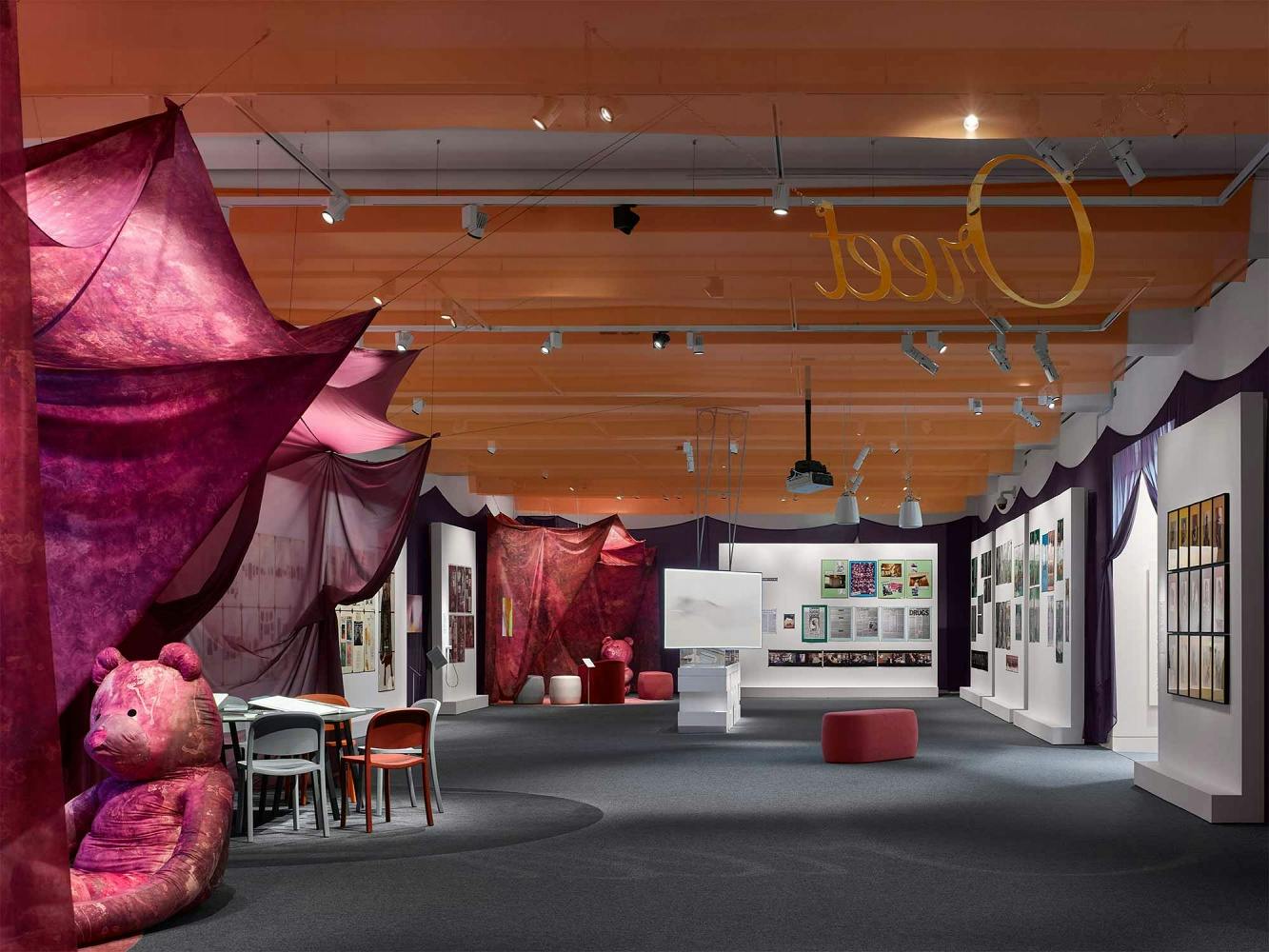
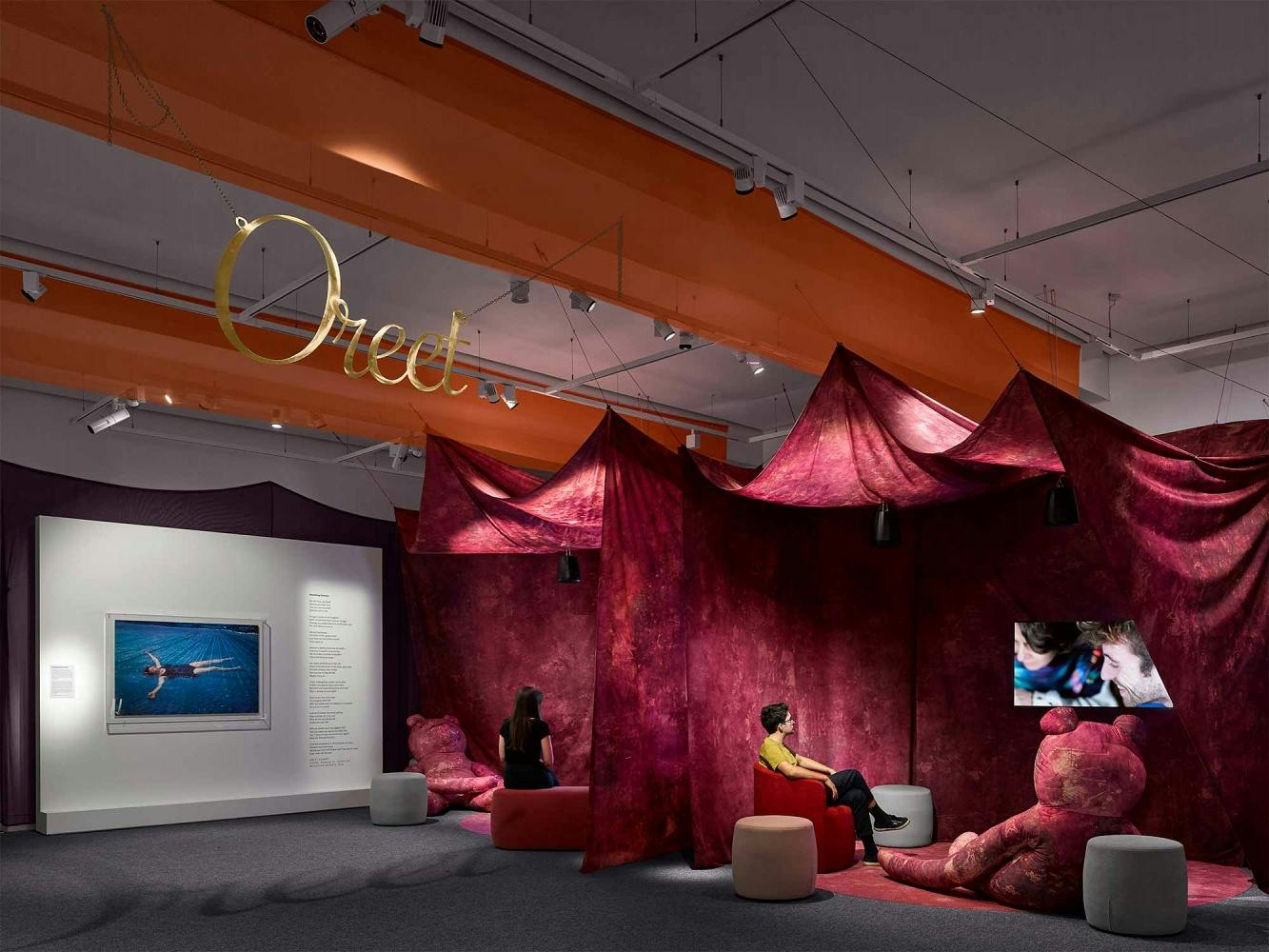
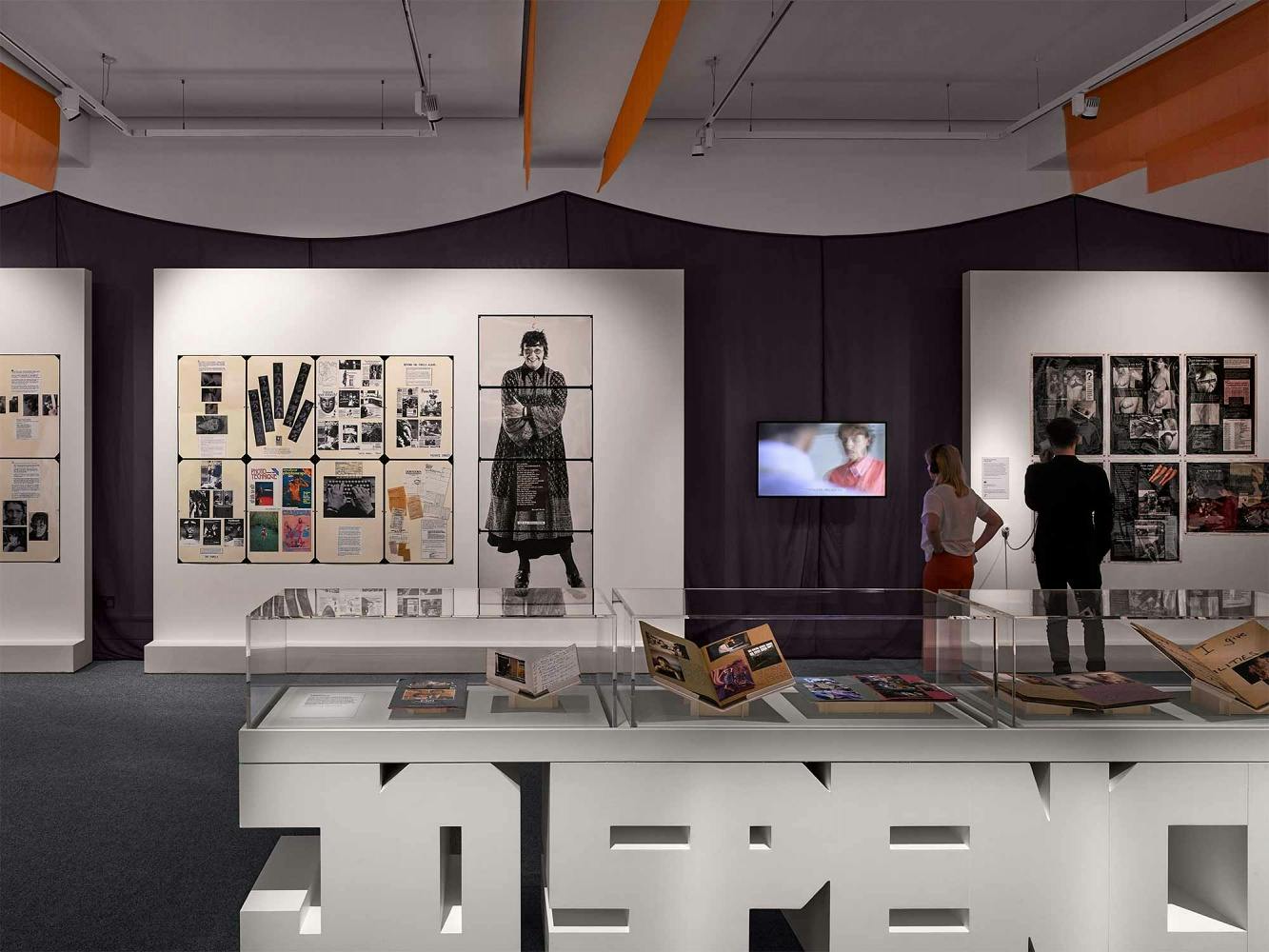
Jo Spence and Oreet Ashery: Misbehaving Bodies brings together two artists who explore the representation of chronic illness and experiences of care. Through their work, and an accompanying live programme, the exhibition foregrounds health diversity and challenges our understanding of "untypical" bodies, reflecting on how illness can disrupt and shape the way we think about the body, family and identity.
Influential photographer Jo Spence’s (1934-1992) work documents her diagnosis of breast cancer and subsequent healthcare regime throughout the 1980s. Her raw and confrontational photographs will be shown alongside Oreet Ashery’s (1966-) award-winning mini-series Revisiting Genesis, 2016, which explores death and dying in the digital era. Together the artists question how we look beyond a patient’s diagnosis and articulate a more complex understanding of illness and life-limiting conditions. It will be one of the most significant exhibitions of both artists’ work to date and marks Wellcome’s acquisition of six works by Spence as part of the Arts and Health collection.
Jo Spence explores the therapeutic potential of photography and confronts us with uncomfortable images of divorce, ageing and illness to challenge conventional representations of perfect lives. Her moving works offer a unique insight into a patient's perspective, while challenging victim-blaming language often used to describe diseases and those who suffer from them. Spence’s work remains particularly relevant today, highlighting the importance of putting patients at the centre of their treatment, whilst engaging with broader issues around our knowledge and understanding of cancer.
The exhibition brings together two of Spence’s most renowned photomontage series: "The Picture of Health?" (1982-86) (developed with Terry Dennett, Maggie Murray and Rosy Martin), charting her journey from diagnosis to treatment over a four-year period, and "Beyond the Family Album" (1978-79), presenting an alternative to idealised family photography. Other works on display will include "Phototherapy," (1984-86), (developed with Rosy Martin) and "The Final Project," (1991-92) (developed with Terry Dennett). A selection of Spence’s journals and scrapbooks will be included as well as a contact sheet of Susan Sontag from 1978, the year Sontag published her celebrated essay "Illness as Metaphor."
Leading contemporary artist Oreet Ashery’s socially-engaged practice incorporates moving image and performance. Constantly experimenting and ever-evolving, her often satirical yet poignant work addresses questions around politics, community and identity. Presented on digital screens in the gallery, the exhibition includes Ashery’s 12-part mini-series Revisiting Genesis which explores the legacies of artists living with life-limiting illness, alongside the fictional story of Genesis, a dying artist. From augmented reality (AR) gravestones and digital estates to avatars generated by harvesting data, Ashery takes an absurd and critical approach to emergent technologies surrounding death and dying. Fact and fiction merge throughout the series as topics such as vulnerability, mourning and loss are reflected upon within minority communities, creating an open dialogue around these challenging subjects.
In Autumn 2019, a new Wellcome film commission by Ashery exploring the recent death of her father, will be displayed in the exhibition. The work raises questions around the representation of death and dying in the era of the selfie. The exhibition is accompanied by a programme of live events and discussions, developed in collaboration with Ashery. Hosted in the gallery, it will be a space for visitors to congregate, watch, reflect, share and participate.
The exhibition featured contributions by Kate Davis, Patrizia Di Bello, Rosy Martin, Marcelo Sánchez-Camus, and Elsa Richardson and Martin O'brien
Reviews:
Curators:
Bárbara Rodríguez Muñoz and George Vasey
Exhibition Design:
David Kohn Architects
Graphic Design:
Mark El Khatib
Project Manager:
Bryony Harris
Registrar:
Emma Smith
Consultants:
Maggie's
Photography:
Thomas S.G. Farnetti